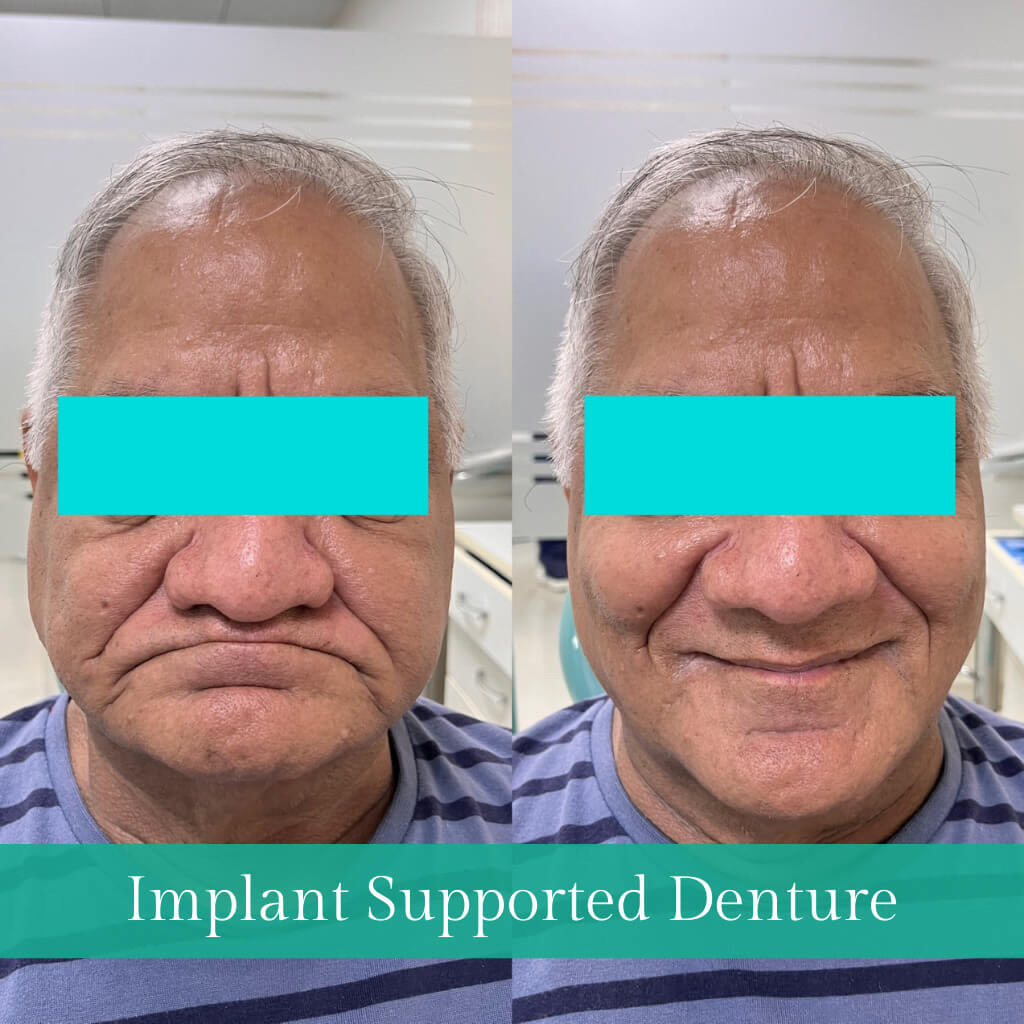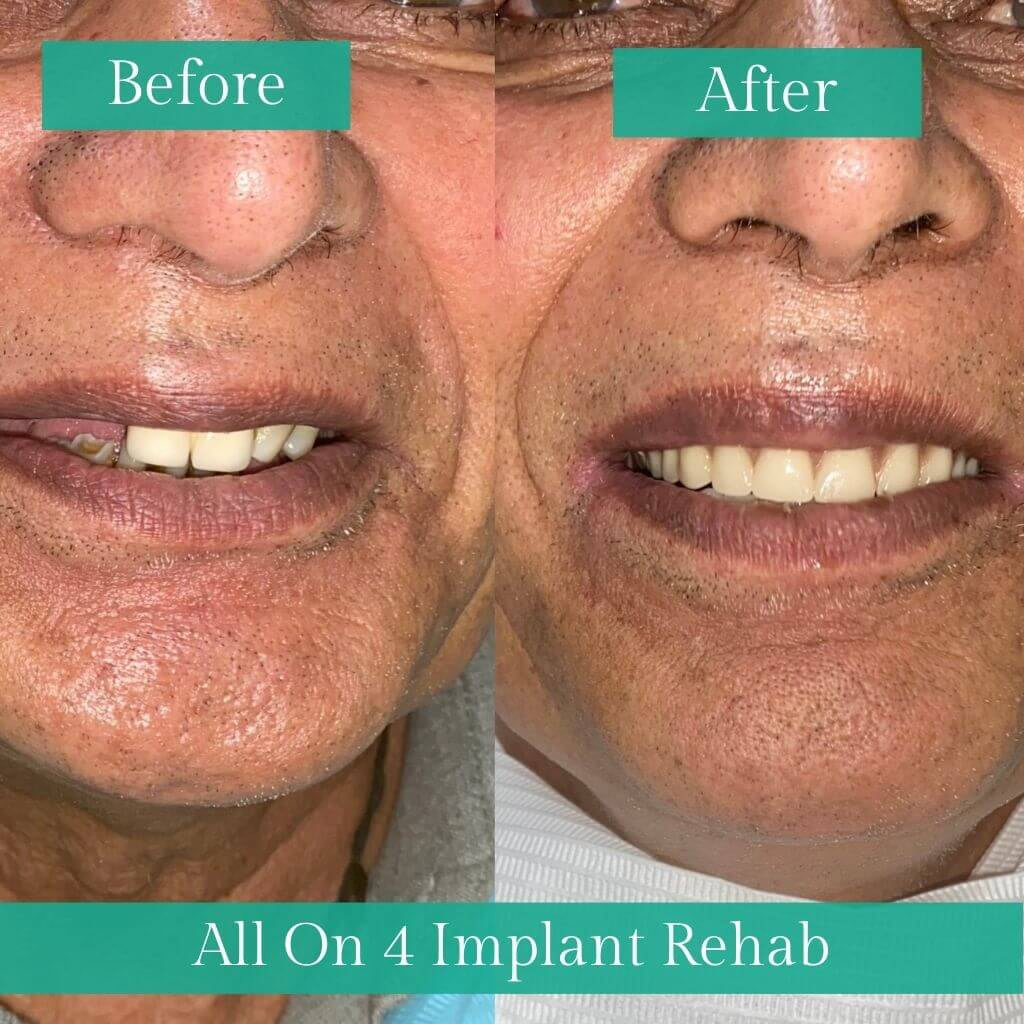What are Dental Implants? Types, Procedures, and More
Have missing teeth resulted in you holding back your smile? Ever found yourself wondering how to fill the gaps in your smile and regain your confidence? Well, let's talk about the remarkable solution - Dental Implants!
Dental implants have become a remarkable and widely accepted solution for replacing missing teeth. They offer a level of stability, functionality, and aesthetics that is unparalleled by traditional dentures or bridges.
In this article, we will explore the world of dental implants, the different types available, the procedures involved, etc, all to help you make a well informed decision about your oral health and that radiant smile you deserve!
Key Takeaways
- Dental implants are artificial screw-like components that provide a stable foundation for prosthetic teeth, mimicking the natural tooth structure through osseointegration.
- Diverse types of dental implants exist, such as endosteal, subperiosteal, and zygomatic implants, each designed to address particular dental requirements.
- The dental implant procedure involves several stages, from initial consultation and surgery to abutment placement and prosthetic attachment, requiring careful planning and follow-up.
- Dental implants offer numerous benefits, such as a natural appearance, improved functionality, durability, bone preservation, enhanced confidence, and better oral health.
- While dental implants are an extremely successful tooth replacement option, it's essential to consider candidacy, weigh alternatives, and be aware of potential risks and complications, emphasizing proper aftercare and maintenance for long-term success.
What are Dental Implants?
Dental implants serve as artificial tooth roots, surgically positioned within the jawbone to establish a sturdy base for replacement teeth. Constructed from biocompatible materials, such as titanium, these implants gradually fuse with the surrounding bone, forming a robust and enduring connection. This fusion process, known as osseointegration, ensures the implant remains firmly anchored in the jaw.
The primary components of dental implants include:
- Implant Fixture: The implant fixture is the part surgically embedded into the jawbone. It resembles a small screw and serves as the root of the tooth.
- Abutment: The abutment acts as the intermediary between the implant fixture and the prosthetic tooth. It protrudes from the gumline and provides support for the dental crown, bridge, or denture.
- Prosthetic Tooth: The prosthetic tooth, also known as the crown, is the visible part that resembles a natural tooth and is attached to the abutment.
Types of Dental Implants
Dental implants come in various types, depending on the patient's needs and the specifics of their case. The two main categories are:
- Endosteal Implants: These are the most common variety of dental implants, as they are inserted directly into the jawbone. Their adaptability allows them to support a single tooth, a dental bridge, or a denture.
- Subperiosteal Implants: Subperiosteal implants are positioned under the gum but above or on the jawbone. They are typically used when patients have insufficient bone height or don't want to undergo a bone graft procedure.
- Zygomatic Implants: Zygomatic implants are used when traditional implant placement is impossible due to severe bone loss in the upper jaw near the cheekbone (zygoma). They provide stability for dentures or prosthetics, improving function and appearance.
Additionally, there are various subtypes of dental implants designed for specific situations:
- Single Tooth Implants: True to their name, these implants are employed for the replacement of individual missing teeth.
- Multiple Tooth Implants: Ideal for replacing multiple missing teeth, these implants can support bridges or partial dentures.
- All-on-4 or All-on-6 Implants: These innovative implant systems allow the attachment of an entire arch of teeth with just 4 to 6 strategically placed implants. They are a cost-effective and efficient solution for edentulous patients.
Dental Implant Procedures
The dental implant procedure typically involves several stages and requires careful planning and execution. Here's an overview of all the essential steps involved:
- Initial Consultation: The procedure starts with an initial consultation during which the oral surgeon or implant dentist evaluates the patient's oral health, takes X-rays or 3D scans, and discusses possible treatment options.
- Treatment Planning: Based on the examination and diagnostics, a customized treatment plan is developed. This plan outlines the type and number of dental implants, including any necessary procedures such as bone grafting.
- Surgical Placement: During this stage, the implant fixture is surgically placed into the jawbone. The patient may receive local anaesthesia or conscious sedation to ensure comfort during the procedure.
- Healing and Osseointegration: After the implants are placed, a healing period of several months is needed for osseointegration to occur. The implants and the jawbone fuse together, forming a strong and stable base.
- Abutment Placement: Once osseointegration is complete, the abutments are attached to the implant fixtures. This step prepares the implants for the placement of the prosthetic teeth.
- Prosthetic Attachment: The prosthetic teeth, which can be crowns, bridges, or dentures, are custom-made to match the patient's natural teeth in size, shape, and colour. These are attached to the abutments, completing the restoration.
- Follow-Up Appointments: Regular check-ups with a dental professional are crucial to monitor healing and implant functionality.
How many teeth can one implant replace?
Dental implants are versatile and can replace either a single missing tooth, multiple missing teeth, or an entire dental arch. The number of implants needed is contingent upon the individual case and the type of restoration being carried out.
Benefits of Dental Implants
Dental implants offer various benefits that make them an appealing choice for tooth replacement:
- Natural Appearance: Implants closely replicate the natural appearance of teeth, offering a seamless and aesthetically pleasing smile.
- Improved Functionality: Unlike traditional dentures, dental implants allow for natural chewing and speech without the risk of slipping or discomfort.
- Durability: Taking good care of your dental implants and ensuring regular maintenance can result in a lifetime of use, making them a wise investment in the long run.
- Preservation of Bone Structure: Dental implants stimulate the jawbone, preventing bone loss and preserving facial aesthetics.
- Enhanced Confidence: The restoration of a complete smile can boost self-esteem and confidence in social and professional settings.
- Improved Oral Health: Dental implants don't require alterations to adjacent healthy teeth, unlike dental bridges. This promotes better oral health in the long run.
Can a dental implant be done in one day?
Yes, there are procedures like "Same-Day Implants" or "Teeth in a Day" that allow for the placement of dental implants and temporary restorations in a single day. However, not everyone is a candidate for this approach, as it depends on your oral health and individual circumstances.
Candidacy and Considerations
While dental implants offer numerous advantages, not everyone is a suitable candidate. Several factors are considered when determining candidacy, including:
- Adequate Bone Density: Sufficient jawbone density is necessary to support the implant. Patients with inadequate bone may require bone grafting.
- Overall Health: Patients must be in good general health, as underlying medical conditions can affect the success of the procedure.
- Oral Health: Good oral hygiene and gum health are vital to prevent complications during and after the implant process.
- Smoking Habits: Smoking can impede the body's natural healing process and decrease the likelihood of a successful implantation.
- Commitment to Aftercare: Patients must be willing to adhere to post-operative care instructions and attend follow-up appointments for long-term success.
It's crucial to discuss these factors with your dental professional to determine your eligibility for dental implants.
How painful is getting a tooth implant?
While slight swelling and discomfort after the procedure is normal, it is well managed by analgesics as prescribed by your doctor. The dental implant surgery is typically painless. Your oral surgeon will use local anaesthesia or sedation to ensure you're comfortable. Most people report that any discomfort is manageable with over-the-counter pain medication.
Dental Implants vs. Alternatives
If you have missing teeth, it's important to know that dental implants are not the only solution available. Several alternatives exist, each with its own set of pros and cons:
- Dental Bridges: Traditional dental bridges involve the preparation of adjacent healthy teeth to anchor the prosthetic tooth. While they offer a fixed solution, they can lead to the weakening of the supporting teeth.
- Dentures: Dentures are removable prosthetic teeth. While they are a more affordable option, they can be less stable and may require adhesives to stay in place.
- Implant-Supported Dentures: These dentures are anchored by dental implants, providing more stability than conventional dentures. When the bone is not sufficient to support complete fixed teeth, this solution is handy to provide a stable denture for comfortable speaking and chewing.
The choice between these options depends on individual needs, budget, and overall health.
Risks and Complications
While dental implants are generally safe and highly successful, there are potential risks and complications to be aware of:
- Infection: Infections may develop at the surgical site, resulting in discomfort and the possibility of implant failure.
- Nerve Damage: Nerve damage can lead to altered sensation in the surrounding areas, such as the lips, tongue, or chin.
- Implant Failure: In rare cases, the implant may not integrate successfully with the bone, leading to instability or loss.
- Sinus Issues: For implants placed in the upper jaw, there is a slight risk of sinus complications is bone is inadequate or not measured in a Cone Beam CT scan.
- Gum Recession: Improper care can lead to gum recession, exposing the implant and compromising its stability.
- Allergic Reactions: While rare, some individuals may experience allergic reactions to the materials used in implants.
It's important to choose an experienced dental professional and follow post-operative instructions to minimize these risks.
Aftercare and Maintenance
Proper aftercare and maintenance are crucial for the long-term success of dental implants. Here are some key considerations:
- Oral Hygiene: Maintain a consistent oral hygiene routine that includes regular brushing, flossing, and the use of an antimicrobial mouthwash.
- Regular Dental Check-Ups: Attend regular check-ups with your dentist to oversee the health of your implants and overall oral health.
- Diet and Lifestyle: Avoid hard or sticky foods that could damage the implant or restoration. Restrict alcohol intake and quit smoking if you smoke as it is detrimental to the longevity of the implant.
- Protect Your Implants: If you engage in activities like contact sports, consider wearing a mouthguard to protect your dental implants.
- Follow Post-Operative Instructions: Adhere to the instructions provided by your dental professional during the recovery period.
How much does a dental implant cost?
The cost of a dental implant at Hope Dental & Esthetic Clinic, Noida, starts at Rupees 15,000 onwards. Please note that the final cost may differ depending on your specific treatment requirements, brand of implant and any additional procedures needed. Kindly book an appointment with us today for a personalized cost estimate!
FAQ’s
Conclusion
In conclusion, at Hope Dental & Esthetic Clinic, Noida, we believe that dental implants offer a versatile and effective solution for replacing missing teeth. With various types and procedures available, individuals can regain their oral health and confidence through this innovative dental technology. Understanding the options and consulting with our qualified dentists is key to making informed decisions about dental implant treatment.
Your journey to a confident, healthy smile starts here!




